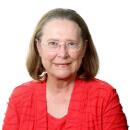Verdugo Views: Photographer returns to postwar Glendale
- Share via
Glenn B. Ward spent his entire career as a professional photographer working out of a small studio in his adopted city of Glendale.
Ward was born and raised in Fresno and earned a business degree before coming to work at Lockheed in the early 1940s. A mutual friend from Glendale Presbyterian Church introduced him to a young woman named Betty Hendricks. When he joined the Air Force in 1942 and was sent off to Europe, they began writing letters to one other.
During his tour of duty, he flew C-47 transports in and out of battle, carrying wounded soldiers, supplies and officers in France and England.
He had always had an interest in photography. While he was overseas he acquired a couple of high-quality cameras and began developing that interest into a serious hobby.
Glenn and Betty were wed during his leave in 1944. She had been married previously and had a young daughter, Sharon, who recalls Ward very fondly. “He was the only Dad I ever knew,” she said.
After the war, as the men prepared to return to civilian life, their commanding officers told them there wouldn’t be a lot of jobs available and that they would have to invent their own careers. They warned the men not to try to turn their hobbies into careers.
But that’s just what Ward did. He shipped his cameras home and in 1946 set up shop as a commercial photographer on east Colorado Street near Verdugo Road, daughter Sharon Ward Thompson said.
Ward photographed products for catalogs and brochures. His clientele came from the many small businesses that were based in Glendale after the war.
One job was photographing film-making and sound-mixing equipment for Voice of America. Other clients included Bob’s Big Boy, McCann’s Engineering and First Fidelity Bank.
Daughters Peggy, Barbara Jo and Glenda soon became younger sisters to Sharon. At first the family lived in Eagle Rock, then in 1955, they moved to Glendale.
Ward sometimes asked his family to model for shots. Thompson recalled the time her mother, who had beautiful hands, held a box of strawberries while he took pictures. “The strawberries were gorgeous,” she said. “We ate them when the shoot was done.”
He did a lot of his work at home, at the kitchen table, Thompson said. “He put the negatives on his opaque light box and did his retouching there. He had such a steady hand. He liked to work late into the night, then didn’t get up until 9:30 or 10 a.m., but he had his own hours, so it was OK.”
Thompson often went down to the studio and helped him; she loved to watch the prints develop before her eyes. On Saturday mornings, when the sky was right, he would go out to take his own pictures; sometimes his family went along as he roamed around town, photographing whatever caught his eye.
Ward became very involved in the community, joining the Order of De Molay and serving as president of the Glendale Optomist Club.
Sunday, though, was always a day for family. After attending services at Glendale Presbyterian Church, they invited friends and family to come and join them for a big Sunday meal at their home. Those family days were one of his greatest gifts to his family, Thompson reflected.
---
Readers Write: Jane Neff Rollins of La Crescenta wrote regarding a recent column about Nena Kelty (Verdugo Views, August 11, 2012).
“I read your column, ‘A history with Vietnamese refugees,’ with great interest, as I helped resettle large numbers of Vietnamese refugees while working for Jewish Family Service from 1975 to 1976. Like Nena Kelty, I cherish my experiences helping single young men and families adjust to a new life here in America.”
